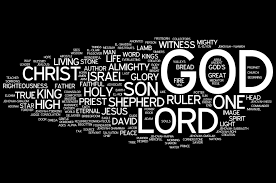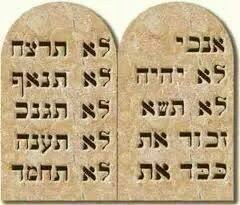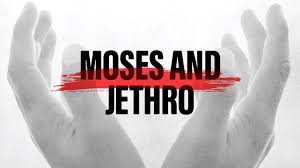Dp – You Shall Not Murder 20: 13
You Shall Not Murder
20: 13
You shall not murder REFLECT: Have I taken the life of another human being out of greed, malice, jealousy, or negligence? Is anger or rage a regular part of my life?
You shall not murder (Exodus 20:13).
You have heard that it was said to the people long ago, “Do not murder, and anyone who murders will be subject to judgment”. But I tell you that anyone who is angry with his brother, Raca (an Aramaic term of contempt) is answerable to the Sanhedrin. But anyone who says, “You fool!” will be in danger of the fire of hell. You have heard it said: Love your neighbor and hate your enemy. But I tell you: Love your enemies and pray for those who persecute you, that you may be sons of your Father in heaven (Matthew 5:21-22, 43-45a).
The sixth commandment elevates human life to the highest possible level, because it recognizes that life is sacred. Life is God’s gift, and we must not tamper with it. No person can restore life once it has ended. To kill is a wrong that, once done, cannot be undone. The finality of taking a human life has caused every civilization, no matter how seemingly primitive, to surround it with prohibitions and regulations. The basic principle is that God alone has sovereignty over physical life and death. After Hannah gave birth to her son Samuel, she praised God with this great truth: ADONAI brings death and makes alive; He brings down to the grave and raises up (First Samuel 2:6). Because God alone is the creator of life, He alone has the right to end it.

The Hebrew word here does not mean killing in general; the Hebrew word murder here, always stresses premeditation and deliberateness. It did not forbid the death penalty as some wish to make it today. In Genesis 9:5-6, God instituted the death penalty: And for your lifeblood I will surely demand an accounting. I will demand an accounting from every animal. And from each man, too. I will demand an accounting for the life of his fellow man. “Whoever sheds the blood of man, by man shall his blood be shed; for God made human beings in His image.” This was never repealed but stated another way in the Torah: If a man strikes someone with an iron object so that he dies, he is a murderer; the murderer shall be put to death (Numbers 35:16-21).
Do not confuse this commandment with taking the life of an animal. Murder means the ending of a human life. No other book than the Bible calls for more mercy towards animals, and the commandments were given at a time when even the most “advanced” civilizations of the day abused animals terribly. So, this commandment has nothing to do with animal life as much as PETA (People for the Ethical Treatment of Animals) would like to have us think. It does not abolish the authority that man has over animals. As God Himself said: Everything that lives and moves upon the earth will be food for you (Genesis 9:3). As a result, humans and animals are not equals, because man was created in the image of God, and the animals, birds, fish, and insects were not.
As always, to understand this sixth commandment we must remember the first two commandments, which tell us that only ADONAI will be the God of our lives. History is full of examples, from ancient Rome to Adolph Hitler, only when ADONAI is truly God is mankind truly human. And only when God counts for everything, does man amount to anything. We must maintain this important hierarchy. With this in mind, let us see how this commandment guides us amid some of the complexities of modern life. It forbids killing a person directly, as when Cain murdered Abel; or indirectly, as when David killed Uriah by ordering someone else to do it.381
First, what about suicide? You have no right to murder yourself. The omission of the object shows that the prohibition includes not only the killing of another person, but also the destruction of one’s own life.382 Life is something that ADONAI does not treat lightly, and it is thus binding on His people to do likewise.383 The same principle applies, ADONAI gives life and He is the only One who has the right to take it. Suicide isn’t a basic human right. If it is not right to murder other human beings, it is not right to murder ourselves. Our life belongs to God, as the Scriptures clearly point out. Do you not know that your body is a temple of the Holy Spirit, who is in you, whom you have received from God? You are not your own; you were bought at a price. Therefore, honor God with your body (First Corinthians 6:19-20).
Nevertheless, we should not condemn those who commit suicide either. The Psalmist Asaph knew only two well the deep distress of human life when he cried out: My flesh and my heart may fail (Psalm 73:26a). And sometimes they do fail. But who is our judge, God alone? Sometimes the circumstances of life drive some people to despair and they are no longer capable of making responsible decisions. However, on a scriptural basis, suicide is murder and murder is not an option if we are accountable to God for our bodies.
Secondly, what about war? Is war wrong? Some believers say that Jesus addresses this when he tells us that we must love our enemies (Matthew 5:39-45), and all who draw the sword will die by the sword (Matthew 26:52). But others say that just as a judge has the right to condemn a murderer, the government has the right, indeed the responsibility, to protect its citizens from evil men and nations. In fact, the Hebrew word murder is never used in the Bible for executing someone who has been condemned to death or for killing an enemy in war. Jesus is described as Commander of the army of the LORD (Joshua 5:13-15). Who is the King of Glory? ADONAI, strong and mighty, ADONAI, mighty in battle (Psalm 24:8). This is not an easy question. This is something you must decide in your own heart, between you and God. No one else can make this decision for you.
Yet, one thing is certain – Christ never gives us, under any circumstances, the right to hate our enemies. If you opt for war, it must be done in agony of spirit and only as a last resort. It must be done regretfully, repentantly, and realizing that it is not a second best decision but a last choice. Those who love the God of Abraham, Isaac and Jacob will not indulge in hatred, a revengeful spirit, bitterness or gloating over a fallen enemy. A believer will instead show love, forgiveness and mercy, even in the midst of war.384 But sometimes you find yourself staring into the face of evil, and you are the only person standing between a Charles Manson, an Adolph Hitler, or a terrorist and someone you love. That is the moment of truth.
What about abortion? Scripture says: For you created my inmost being; you knit me together in my mother’s womb. I praise you, because I am fearfully and wonderfully made; your works are wonderful, I know that full well. My frame was not hidden from you when I was made in the secret place. When I was woven together in the depths of the earth, your eyes saw my unformed body. All the days ordained for me were written in your book before one of them came to be (Psalm 139:13-16; also see Psalm 22:10; Isaiah 44:2 and 24; Jeremiah 1:5 and 20:17). So abortion should never be used to ease the emotional or financial pain of an unwanted pregnancy. In the case of rape, adoption should be an option if the mother cannot see her way clear to raise the child.
But the Scriptures do no cover every situation in our lives. In our Statement of Faith under Faith and Practice, we state that Scripture is the final authority in all matters of faith and practice. We recognize the local church cannot bind the conscience of individual members in areas where Scripture is silent. Rather, each believer is to be led in those areas by the Lord, to whom he or she alone is ultimately responsible (First Corinthians 8:9; Romans 14). The case of saving the life of the mother because of a pregnancy, or during childbirth, is a difficult one because Scripture is silent. Therefore, the most important thing to do is to bring it before the Lord. Pray about it. Seek God.
Let’s look at a hypothetical situation. Say a young married believer has a five year old, a two year old, she’s pregnant, and she has cancer. The doctor comes in and tells her that she needs chemotherapy to live. But if she has chemotherapy it will kill the baby – abortion or not. She prays about it for several days. If she decides not to have the chemotherapy does that mean she is very godly woman? If she chooses to go ahead with the chemo does that mean she lacks faith? If she chooses not to have the radiation treatment does that mean God will save her life because she exhibited faith? If she says, Lord, “Your will be done,” does that mean that she will live?
Would you judge someone who went ahead and had an abortion under these circumstances? No. But there still are no easy answers. Some would say if she didn’t have the chemo that she is acting in a suicidal manner. Others would say she is displaying great faith. Is it right to make a decision to end someone’s life? No. Is it God who determines who should live and who should die? Of course it is. However, should a person choose to die to save another’s life? Are we commanded to do that? No! Taking your own life is wrong and taking another person’s life is wrong. No easy answers there! None of us really knows what we would do unless we were actually confronted with the situation. The bottom line is that when it comes down to making a difficult decision like this, it’s between you and God.
When Jesus came He restated the sixth commandment and raised it to a much higher level, penetrating deep into our hearts. The Torah only prohibited the outward violence that would kill; however, Christ expanded it to include the inward thoughts and feelings of anger that lead to physical violence. But there is a righteous anger, Jesus Himself got angry at the right time, at the right place, and about the right things. We should do likewise. However, God did condemn that personal, out-of-control type of feeling. The only difference between anger and murder is in degree. Isn’t that the order in which killing occurs? Each one is tempted when, by his own evil desire, he is dragged away and enticed. Then, after desire has conceived, it gives birth to sin; and sin, when it is full grown, gives birth to death (James 1:14-15). First comes the seething resentment, an insult, the hatred, and finally murder.385 But ADONAI said: You shall not murder.





















